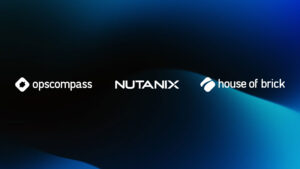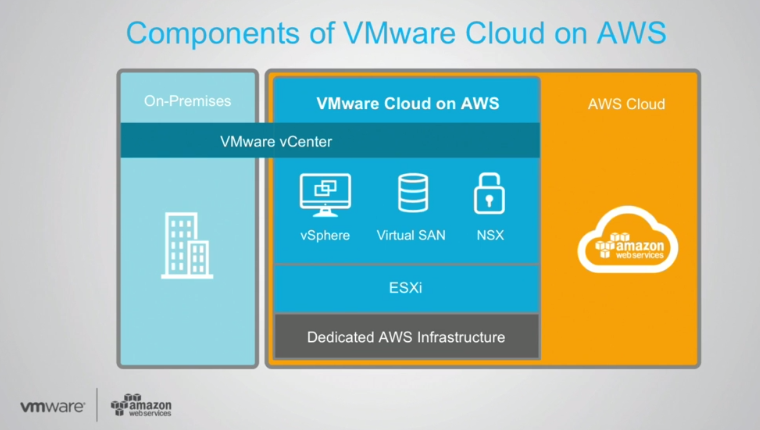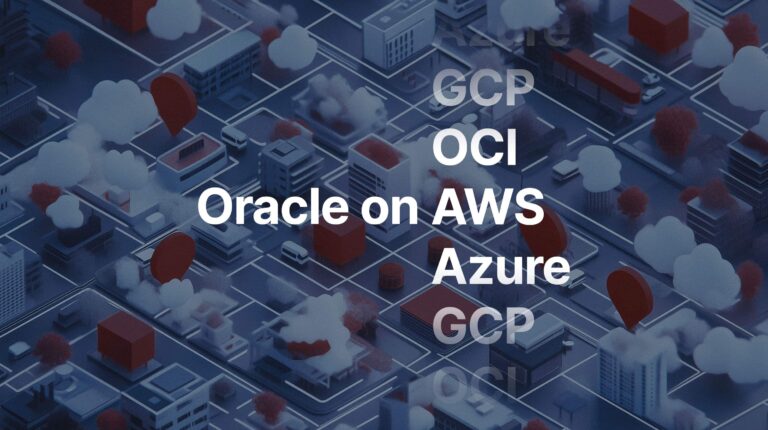Nathan Biggs (@nathanbiggs), CEO
VMware and AWS Announcement May Crack Open the Window of Opportunity
Over the past two years, we at House of Brick have seen a sea change in the attitudes of companies worldwide toward virtualizing Oracle technology. Whereas virtualizing Oracle on VMware used to be something only the fearless undertook, it has now become a best practice. I would like to think that House of Brick had a hand in the momentum shift with our work in the industry.
Since deploying our first customer production workload of Oracle E-Business Suite on VMware in 2006, we have had the privilege of consulting with many customers to do the same thing. The list of organizations that House of Brick has consulted with for Oracle or SQL Server on VMware includes many, if not most, of the Fortune 500 companies. The list also includes state and local governments in over a third of the states in the U.S. and provinces in Canada; many small and medium sized businesses, and a growing list of worldwide customers across six continents.
Now that virtualizing Oracle has become best practice, we are seeing our customers turn their attention to evaluating a public cloud component in their operations.
Currently, the biggest barrier to virtualizing Oracle on VMware is answering questions about licensing. Much of our current work at House of Brick is helping customers understand the truth about Oracle licensing and then creating architectures, operations, and organizational alignment to comply with that position. I believe that the single biggest barrier to running Oracle in a public cloud environment has been the same question – how does licensing Oracle technology work in the public cloud, especially since I am running everything in a VMware virtualized environment?
The truth is that for companies with a VMware virtualization strategy, there has not previously been a good public cloud option for their Oracle workloads. Oracle authorized Infrastructure as a Service providers (IaaS), including AWS and Microsoft Azure, have not previously had VMware compatible options for moving into and out of the cloud. The Oracle cloud itself has so far been more Database as a Service rather than IaaS.
You can imagine our excitement then, when VMware and AWS announced their partnership Now, the AWS infrastructure of compute, storage, and network can be provisioned, and managed through our customers’ existing VMware tools using vSphere, vSAN, and NSX. We are particularly intrigued (although not yet convinced it is viable) because AWS (EC2 and S3) is an authorized Oracle Cloud Environment What this has meant to AWS users in the past is that they have been able to apply their existing Oracle licenses to cover workloads running in AWS. However, this has not been an option available previously to Oracle customers who wanted to retain their environment in VMware virtual machines.
Please understand that House of Brick is not presently endorsing the position that Oracle’s document covers VMware Cloud on AWS. Before making any such endorsement we need to understand the VMware, AWS, and Oracle sides of things more clearly. Even more important, we encourage each of our customers to undertake an internal legal review to answer the question for themselves.
There are, however, a few things that we have found intriguing about with this announcement from AWS and VMware in relation to Oracle licensing. On the VMware Cloud on AWS page there is some interesting information that bears mentioning. The first is the architecture diagram shown below.
There are two compelling things about this diagram, relative to deciding if VMware virtual machines would fall under Oracle’s cloud policy, they are:
- VMware Cloud is on dedicated AWS hardware (implying different from AWS), but,
- The VMware dedicated infrastructure is still within, and considered a part of Amazon Web Services (AWS).
Even if we were to agree that VMware Cloud on AWS is fully within the AWS standard environment, Oracle’s previously referenced cloud policy document makes the authorized environment more specific. In summary, it states that the authorization is for Amazon Web Services, and specifically includes as part of AWS, the Amazon Elastic Compute Cloud (EC2) and Amazon Simple Storage Service (S3).
So, the next question would be, does the VMware Cloud on AWS run on EC2 for compute and S3 for storage? The only hint of an answer to that question that I have been able to find is in a demo video provided by Dr. Matt Wood, AWS GM, Product Strategy, and Mark Lohmeyer, VMware VP Products.
In this video, at about the 9:30 mark, Dr. Wood states the following (emphasis added):
“One of the things that customers love most about AWS is the broad and deep set of functionality that they can take advantage of across over 70 different cloud services. And with the VMs that are running on the VMware Cloud on AWS being on EC2, they can take advantage of all of these services because they are right next door. So if they want to access data which is stored in the Simple Storage Service, if they want to run queries against an enterprise grade data warehouse, if they want to be able to run relational and non-relational low latency databases, all of that is wrapped up and available in the AWS cloud.”
This is a clear, if not yet legally defensible statement, that the VMware Cloud on AWS runs on EC2 and accesses data from S3.
A final consideration is that the Licensing Oracle Software in the Cloud Computing Environment policy document is a non-contractual reference. It is excluded by the Entire Agreement clause of your master agreement with Oracle. Even though it is not binding through the agreement, it has been the recommendation of House of Brick (to the legal teams of our customers) that this is a published policy, albeit non-contractual, that grants additional privileges. This is in contrast to a non-contractual document like the Partitioning Policy document that attempts to restrict privileges in a non-contractual way. The granting of additional privileges through a non-contractual document would seem to be more binding than one that restricts privileges (again this is not legal advice, please review this with your legal team).
From these indications, it seems like a strong possibility that the VMware Cloud on AWS is in compliance with the requirements of the Licensing Oracle Software in the Cloud Computing Environment document published by Oracle. We will be doing more internal analysis of this possibility, as well as consulting with our legal partners, and the legal teams of the clients we are working with. Once we feel confident in making a more definitive statement, we will do so at that time.
As always, please let us know if we can help you in your architectural, operational, or organizational strategies relative to running Oracle, SQL Server, or other business critical applications in virtualized and cloud environments.







